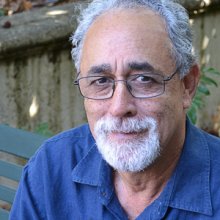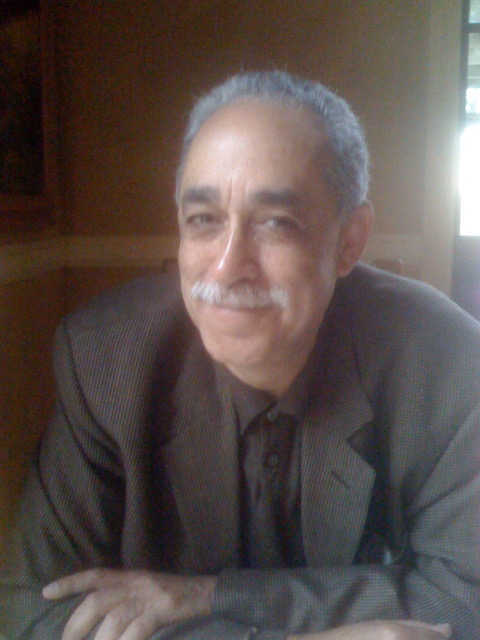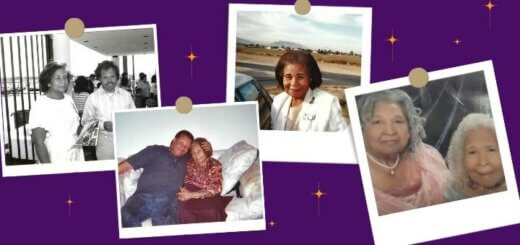Pastor helps churches support those with Alzheimer’s
As the Pastor of St. Augustine’s Episcopal Church in Oakland, Reverend Kwasi Thornell is used to supporting church members who are impacted by a variety of health conditions. A few years ago, two members of his church died from Alzheimer’s disease.

In preparing for the funerals, Rev. Thornell started reading about Alzheimer’s disease. He learned how serious it was in the African American community.
He reflected on how little many in the community knew about Alzheimer’s and other dementias. “The more I read about it,” said Rev. Thornell, “the more I thought that the church community needs to be engaged in helping people living with Alzheimer’s and their caregivers.”
Rev. Thornell spoke to a friend about his desire to get involved. She connected him with the Alzheimer’s Association.
Becoming a faith outreach volunteer
For the past 2 ½ years, Rev. Thornell has volunteered, reaching out to churches and church associations in the Bay Area. He speaks to church leaders and shares resources to help them support members of their community who are impacted by Alzheimer’s or other dementias.
When speaking to churches whose members are mostly African American, Rev. Thornell shares that older African Americans are twice as likely to develop dementia as older whites. They are also more likely to be diagnosed later in the disease.
Currently, Rev. Thornell is reaching out to other Episcopal leaders in Alameda County. He is sending out resource information and offering to speak.
“Whether the church leaders invite me in to speak or not,” Rev. Thornell shared, “they will have the information available” to support their members.
He has also participated in the annual African American Caregiver Forum, held by the Alzheimer’s Association in Oakland. Some participants who are active in their faith communities share the information they gather at the Forum.
Reducing the stigma
Leading a congregation, Rev. Thornell knows firsthand that church leaders receive many requests to address a variety of issues. Sometimes things get put to the side until a member of the community is directly affected.

Another challenge Rev. Thornell recognizes is that there are many health issues that disproportionately impact the African American community. Still, he has been surprised that church leaders have not been as responsive as he had hoped.
Rev. Thornell has witnessed the stigma that still exists among some African Americans related to Alzheimer’s. He encourages people not to ignore the signs of Alzheimer’s. “Early detection is very important,” shared Rev. Thornell. “It helps people prepare.”
He also encourages African Americans to participate in Alzheimer’s research. This will help to ensure that new prevention or treatment strategies will be effective for African Americans.
Working within his own church
In his own congregation, Rev. Thornell talks about Alzheimer’s disease and caregiving in his sermons. He established a health committee that makes materials available and offers workshops on dementia and other topics.
He has supported numerous families who are facing Alzheimer’s or other dementias. He said that it helps to keep Alzheimer’s on the forefront and let people know about resources that can help them.
Getting more African Americans to talk about how their families have been impacted by Alzheimer’s or other dementias is one of Rev. Thornell’s goals. Putting a public face on the disease can bring more attention and resources to the effort to find a way to prevent, treat or cure Alzheimer’s.
Connecting people to resources
Despite the challenges, it’s clear that Rev. Thornell’s efforts are making an impact. After his presentations, often someone will come up to him and share that a friend or loved one has Alzheimer’s.

Rev. Thornell has found that many families don’t know about the resources that are available. He is able to share information and connect those families with community programs and services. He has also provided tips on communicating with other family members.
Rev. Thornell enjoys hearing back from people who have accessed the resources he recommended for dementia education, financial information or housing. He says it’s rewarding to “have one-on-one conversations with people who just need someone to talk to who understands what they are going through.”
Training and support for volunteers
When he first became interested in volunteering, Alzheimer’s Association staff provided training and materials for Rev. Thornell. They continue to support him in his volunteer activities.
“The Alzheimer’s Association staff have been very helpful to me,” shared Rev. Thornell. I’m impressed by all of the resources that are available and their work to get them to the people who need them.” When he was speaking to a group from the Asian/Pacific Islander community, Rev. Thornell was happy to learn that the Alzheimer’s Association had materials available in other languages.
Tips for others to get involved
Rev. Thornell had tips for how others can get involved, even on an informal level:
- Attend educational programs and learn about the resources available through the Alzheimer’s Association and other community groups.
- Ask your faith community to make resources available and/or bring in a speaker to talk about Alzheimer’s and related disorders.
- If you are in a book club, encourage your book club to read a book about Alzheimer’s.
- Learn more about volunteer opportunities through the Alzheimer’s Association.
“The more I get into it,” shares Rev. Thornell, “the more I feel like it was something I was called to do. It feels right.”
Learn more:
- Chapter resources for African Americans
- Alzheimer’s and other dementias
- Information for those living with Alzheimer’s and other dementias
- Caregiver resources
Rev. Thornell had a few book suggestions.
- Before I Forget: Love, Hope, Help, and Acceptance in Our Fight Against Alzheimer’s – by B. Smith and Dan Gasby
- Still Alice – by Lisa Genova
- The Wide Circumference of Love: A Novel – by Marita Golden

















